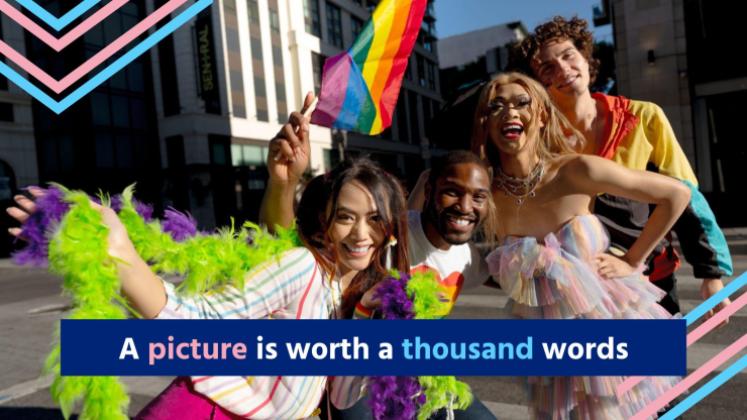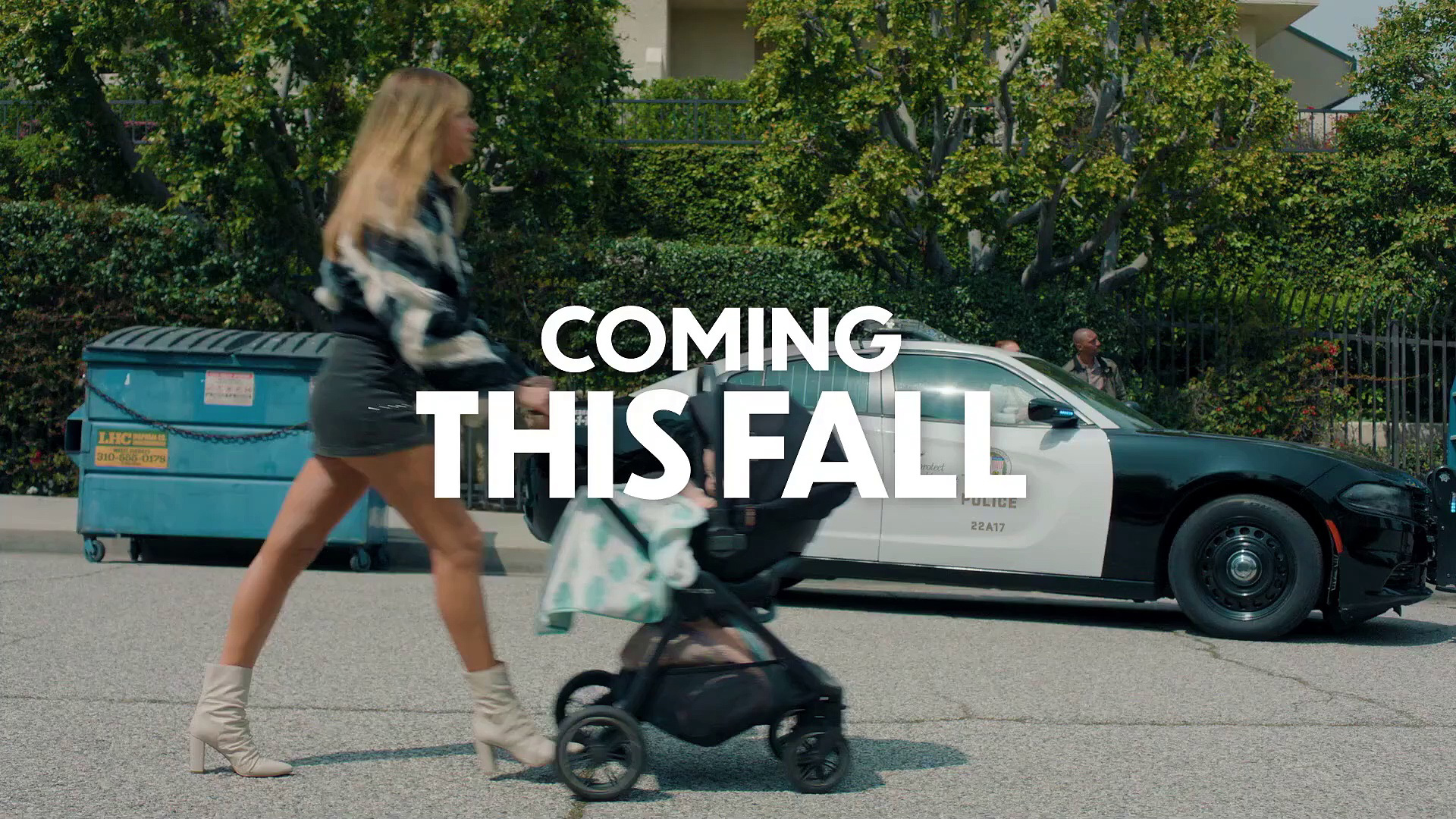How To Be A Better Ally On International Transgender Day Of Visibility

Table of Contents
Educate Yourself on Transgender Issues
Understanding the transgender experience is the foundational step to becoming a better ally. This involves moving beyond basic awareness to a deeper comprehension of gender identity, expression, and the challenges faced by transgender individuals.
Understanding Gender Identity and Expression
It’s crucial to distinguish between sex assigned at birth, gender identity, and gender expression. Sex assigned at birth refers to the sex assigned by medical professionals at birth, based on biological factors. Gender identity is one's internal sense of being a man, woman, both, neither, or somewhere else along the gender spectrum. Gender expression refers to how someone outwardly presents their gender through clothing, behavior, and other means. These are distinct aspects of identity, and it's important to respect the differences between them. For more information, explore reputable resources like GLAAD (glaad.org), The Trevor Project (thetrevorproject.org), and the Human Rights Campaign (hrc.org).
- Learn about the challenges faced by transgender individuals: This includes systemic discrimination in healthcare, employment, housing, and education; the high rates of violence and harassment; and the significant mental health disparities transgender people face.
- Familiarize yourself with common terminology and avoid using outdated or offensive language: Using correct pronouns and terminology is fundamental. Terms like "transgendered" are outdated and often considered offensive. Always use the name and pronouns a transgender person shares with you.
- Understand the diversity within the transgender community; avoid generalizations: The transgender community is incredibly diverse, with varied experiences, backgrounds, and identities. Avoid making broad assumptions about all transgender people based on limited knowledge.
- Research the history of transgender rights and activism: Understanding the historical context of transgender rights movements helps appreciate the ongoing struggles and the importance of continued advocacy.
Actively Listen and Learn from Transgender Individuals
Becoming a better transgender ally is not solely about educating yourself; it's about actively listening to and learning from the experiences of transgender individuals. Creating space for their voices is paramount.
Creating Safe Spaces for Sharing
Building trust and creating a safe space for sharing is essential. Transgender individuals may not always feel comfortable sharing their experiences, so fostering an environment of trust and respect is crucial.
- Practice active listening—focus on understanding, not responding: Active listening involves truly hearing what someone is saying, without interrupting or formulating a response while they are still speaking. Focus on their experiences and emotions.
- Ask respectful questions, but only when appropriate and invited: Avoid intrusive or prying inquiries. Respect boundaries and only ask questions if the individual explicitly invites them.
- Be mindful of your own biases and assumptions: We all have biases; acknowledging and challenging them is crucial to becoming a better ally.
- Validate their feelings and experiences: Let transgender individuals know that their feelings and experiences are valid and understood.
- Amplify their voices and stories: Share their stories and perspectives to raise awareness and promote inclusivity.
Advocate for Transgender Rights and Equality
Being a better ally extends beyond personal interactions; it requires active advocacy for transgender rights and equality.
Supporting Inclusive Policies and Legislation
Support policies and legislation that protect transgender rights and ensure equal opportunities. Your voice matters.
- Contact your elected officials to voice your support for legislation protecting transgender rights: Contacting your representatives is a powerful way to advocate for change at the policy level.
- Support organizations working to advance transgender equality: Donate to or volunteer with organizations dedicated to transgender rights and equality.
- Educate others about the importance of transgender inclusion: Talking about the importance of transgender rights with friends, family, and colleagues can make a difference.
- Challenge transphobic language and behavior: If you witness transphobic behavior, speak up safely and respectfully.
- Promote inclusive workplaces and communities: Advocate for policies and practices that support transgender inclusion in your workplace and community.
Challenge Transphobia and Discrimination
Confronting transphobia is a crucial aspect of allyship. This means actively challenging transphobic attitudes and behaviors whenever and wherever they occur.
Bystander Intervention Techniques
Learning effective bystander intervention techniques is key. This isn't always easy, but even small actions can make a difference.
- Learn how to safely and effectively call out microaggressions and transphobic remarks: Sometimes a simple statement like, "That's not okay," can be effective. Other times, a more direct confrontation might be necessary, always prioritizing your safety.
- Know your limits and prioritize your safety: Your safety is important; intervene only when it's safe to do so.
- Offer support to victims of transphobic violence or harassment: Let them know you are there for them and offer practical support if needed.
- Report instances of discrimination to the appropriate authorities: Reporting discrimination is important for holding perpetrators accountable.
Conclusion
Becoming a better ally for the transgender community requires ongoing effort, education, and a commitment to action. By actively listening, educating ourselves, advocating for change, and challenging transphobia, we can build a more inclusive and just world for transgender individuals. This International Transgender Day of Visibility, let's commit to making a difference.
This International Transgender Day of Visibility, pledge to be a better ally. Learn more about transgender issues, support transgender rights, and actively challenge transphobia in your daily life. Let's work together to create a more welcoming and affirming world for all transgender people. #TransVisibility #BetterAlly #TransgenderAlly

Featured Posts
-
 Imf Review Of Pakistans 1 3 Billion Package Tensions With India And Other News
May 10, 2025
Imf Review Of Pakistans 1 3 Billion Package Tensions With India And Other News
May 10, 2025 -
 El Salvadors Gang Violence And The Kilmar Abrego Garcia Case A Us Political Debate
May 10, 2025
El Salvadors Gang Violence And The Kilmar Abrego Garcia Case A Us Political Debate
May 10, 2025 -
 10 Essential Film Noir Movies To Watch
May 10, 2025
10 Essential Film Noir Movies To Watch
May 10, 2025 -
 Pair Jailed For Destruction Of Famous Sycamore Gap Tree
May 10, 2025
Pair Jailed For Destruction Of Famous Sycamore Gap Tree
May 10, 2025 -
 High Potential Still A Psych Spiritual Powerhouse 11 Years On
May 10, 2025
High Potential Still A Psych Spiritual Powerhouse 11 Years On
May 10, 2025
